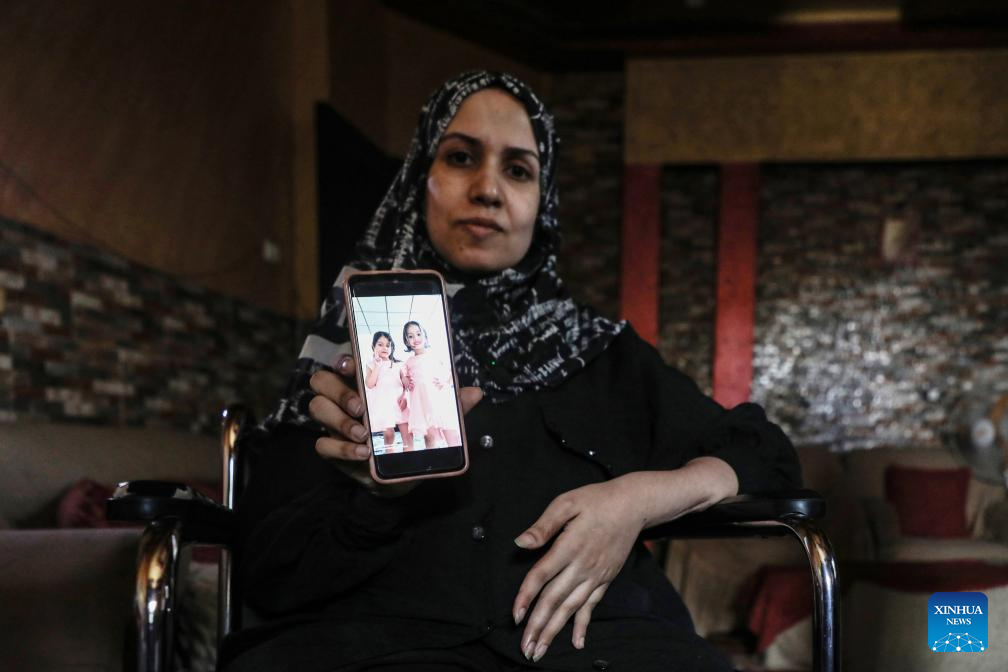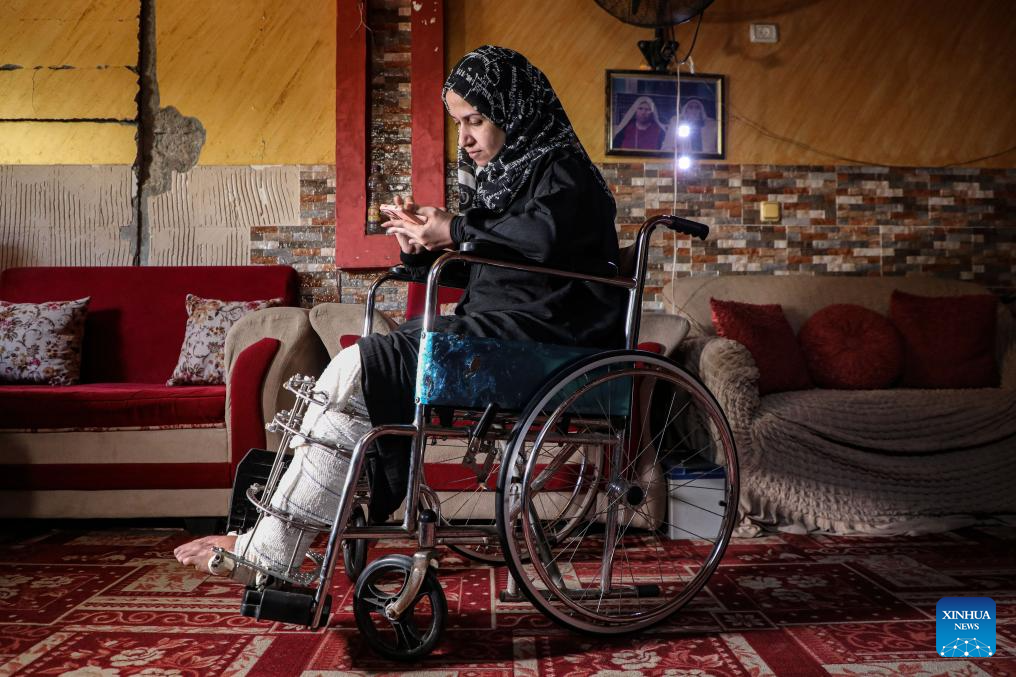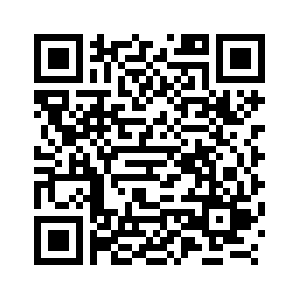Feature: "Sealed border, sealed fate" -- thousands of Gaza patients stranded without access to treatment abroad
Source: Xinhua
Editor: huaxia
2025-10-25 22:51:00

Hanin al-Mabhouh shows a picture of her children at home in al-Nuseirat refugee camp in central Gaza on Sept. 25, 2025.(Photo by Rizek Abdeljawad/Xinhua)
GAZA, Oct. 25 (Xinhua) -- In a small tent pitched atop the rubble of her destroyed home, Nour Mohammed Abu Madi, 34, is losing her battle with bone cancer. She has no access to chemotherapy, no way to leave for treatment abroad, and little hope that help will arrive in time.
"A year and a half ago, I was diagnosed with bone cancer," Abu Madi told Xinhua in a trembling voice. "I tried to travel abroad for treatment, but I couldn't get a referral or approval, and the medicine I need is unavailable here. I live only on painkillers, and my condition is getting worse day by day."
Abu Madi said her nights have become endless hours of pain and fear. "There is no medicine to ease my suffering... I feel my body collapsing, and what hurts me most is that I can no longer be the mother I once was. My children need me, but I cannot even hold them," she said.
Beside her bed, her mother, Om Mohammed, wipes sweat from her daughter's forehead with a damp cloth. "Nour was strong," the mother said. "But now she is collapsing in front of my eyes. We appeal to the world to see her as a human being who deserves a chance at life, not as a number on a waiting list."
Like thousands of others, they wait in uncertainty as the Rafah border crossing -- the main exit point for Palestinians seeking medical care abroad -- has remained closed for months.
In the al-Nuseirat refugee camp in central Gaza, 34-year-old Hanin al-Mabhouh faces a similar ordeal. Confined to a wheelchair after an Israeli airstrike hit her home in July 2024, she lost her left leg and four of her daughters in the same attack.
"I was preparing lunch for my girls," al-Mabhouh recalled, her voice trembling. "My youngest was laughing as she helped me in the kitchen. Suddenly, there was a deafening sound - fire and dust everywhere. I woke up in the hospital with one leg gone and all my daughters gone too."
"I lost everything in an instant -- my home, my family, even my ability to stand," she lamented. "Now I live on aid that barely covers food, let alone medicine."
Doctors told al-Mabhouh she needs surgery to install a prosthetic limb and long-term physical therapy to regain movement, but all medical referrals have been frozen due to border closures. "I submitted my papers several times for treatment abroad, but no one responded. Every day that passes, my hope grows weaker."
The cases of Abu Madi and al-Mabhouh reflect a growing humanitarian crisis. More than 18,500 patients and wounded people urgently need to travel abroad for medical treatment, yet only 680 have been able to leave the Gaza Strip since the beginning of this year, according to Monir al-Borsh, director general of Gaza's health authorities.
"Requests for medical evacuation are often delayed or denied despite the completion of all international procedures. Thousands of lives could be saved if patients were allowed to leave, but many die waiting," al-Borsh told Xinhua.
Al-Borsh warned that Gaza's health system is "on the verge of total collapse," as fuel shortages have forced the shutdown of X-ray machines and hospital generators, while medical teams are working "under extreme pressure for long hours, often without rest or adequate supplies."
The process of medical evacuation for Gaza's patients is coordinated through international mechanisms supervised by the World Health Organization (WHO) and partner agencies, which arrange transfers to hospitals in Egypt, Jordan, the United Arab Emirates, Qatar, Türkiye, and several European Union countries, according to the WHO.
However, these medical evacuations -- once a lifeline for thousands of critical cases - have sharply declined over the past year, particularly since May, due to the ongoing closure of the Rafah border crossing, the WHO said in a press statement issued in late September.
It stressed that a ceasefire and guaranteed safe access are essential to sustain evacuation operations and save lives, urging members to expand humanitarian corridors through Egypt and Jordan and restore the medical transfer route to the West Bank, including East Jerusalem.
"Every day we see dozens of cases like Nour and Hanin," al-Borsh added. "Some of them could be saved if treated in time, but the borders and time decide their fate." ■

Hanin al-Mabhouh is pictured at home in al-Nuseirat refugee camp in central Gaza on Sept. 25, 2025.(Photo by Rizek Abdeljawad/Xinhua)



